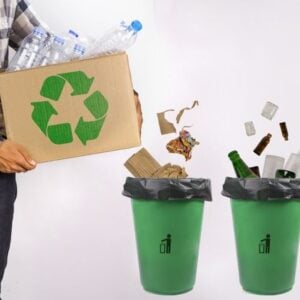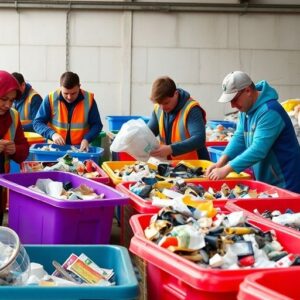Plastic waste is set to triple by 2060 unless the global community reaches a binding international agreement, according to the UN Environment Programme (UNEP). This stark warning underscores the urgency of the UNEP-led negotiations currently underway, following a 2022 decision by UN Member States to create a legally binding instrument aimed at ending the plastic pollution crisis within two years.
Plastic waste, from single-use straws and cups to carrier bags and microbead-filled cosmetics, is piling up in oceans and landfills. Supporters of the treaty have likened its importance to the Paris Climate Agreement, while also highlighting opposition from oil-producing countries whose economies benefit from plastic production. UNEP Executive Director Inger Andersen stressed that recycling alone won’t solve the crisis; instead, a shift to a circular economy is essential.
The proposed treaty aims to cover the entire life cycle of plastics—from design and production to disposal—by promoting circularity and preventing plastic leakage into the environment. The 22-page draft text includes 32 articles and is the central document for negotiations taking place in Geneva from August 5 to 14, with participation from 179 countries and over 1,900 stakeholders including scientists, environmentalists, and industry leaders.
One of the goals of the Geneva meeting is to share proven methods for reducing plastic use, such as sustainable alternatives and non-plastic substitutes. Ahead of the talks, The Lancet issued a serious health warning, stating that plastic materials cause disease throughout their life cycle and have been linked to over $1.5 trillion in annual health-related economic losses. Infants and young children are particularly at risk.
Jyoti Mathur-Filipp, who leads the Intergovernmental Negotiating Committee (INC), highlighted that in 2024 alone, humanity is expected to consume over 500 million tonnes of plastic, with 399 million tonnes becoming waste. Forecasts show that plastic leakage into the environment may grow by 50% by 2040, with potential damage costs reaching up to $281 trillion between 2016 and 2040.
The Geneva talks are the sixth in a series of global negotiations toward a plastic treaty. Previous sessions took place in Uruguay, France, Kenya, Canada, and most recently in Busan, South Korea. Those discussions were paused and are now continuing under the leadership of Ecuador’s Ambassador Luis Vayas Valdivieso, who chairs the INC.






